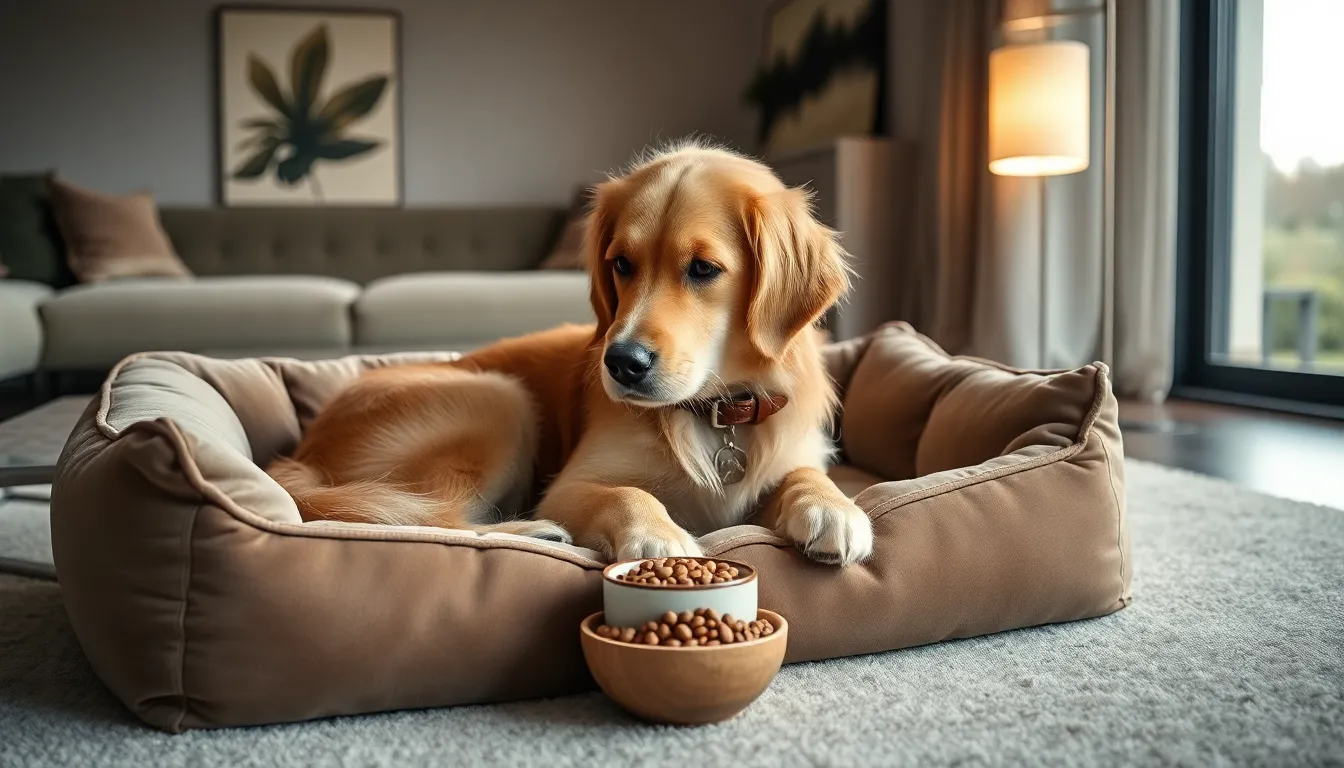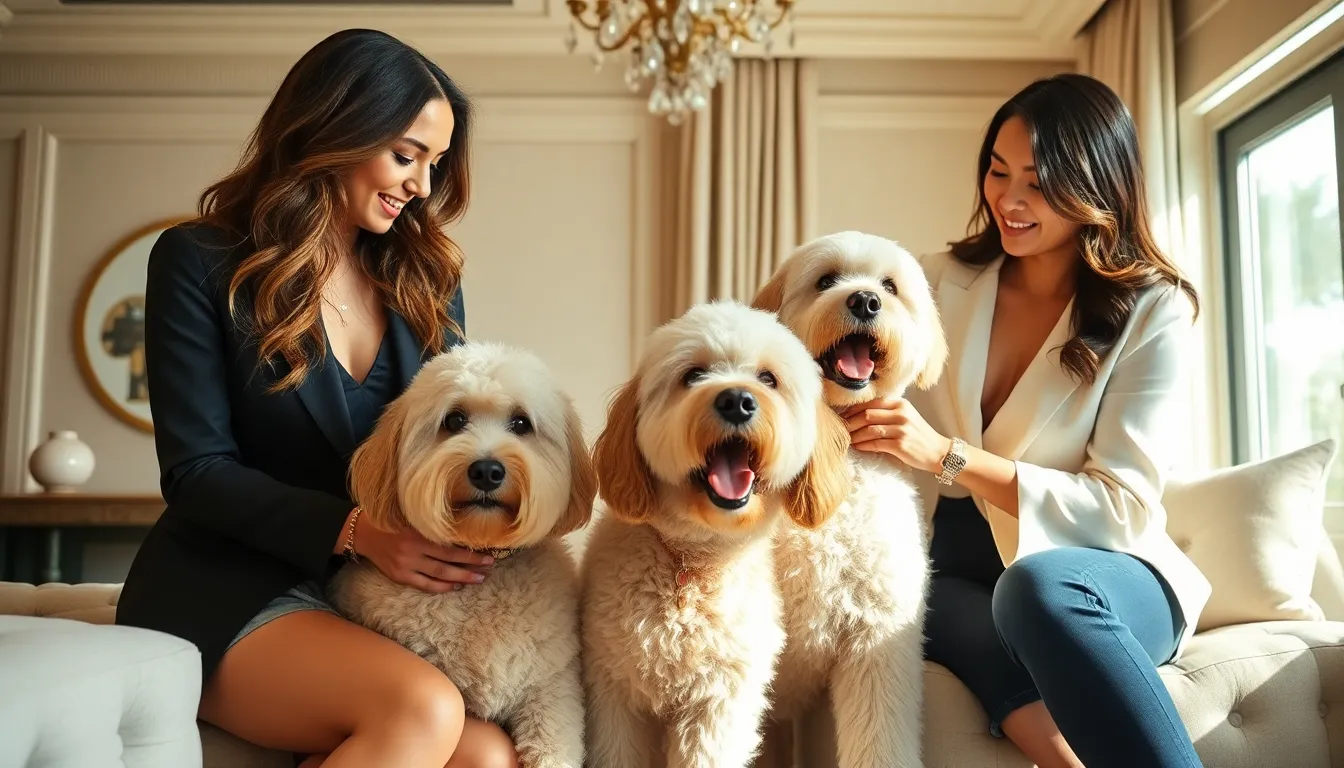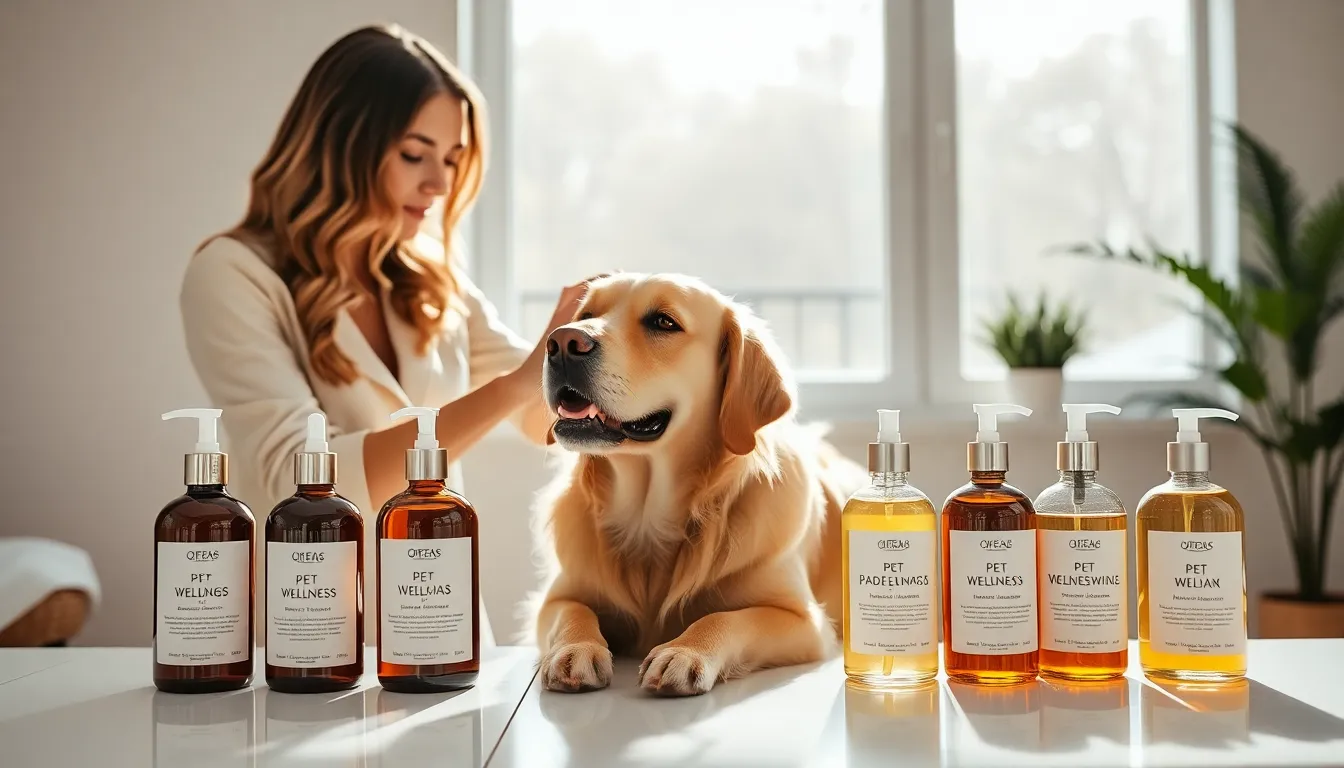Is petcare the next luxury opportunity? The petcare market is undergoing a significant transformation, with influential figures and sophisticated marketing strategies entering to address a clear gap for high-end brands. This shift is driven by the humanization of pets, leading owners to seek premium products and services mirroring human-grade luxury.
Key Implications
- Untapped Luxury Market: Influential figures are actively entering the petcare sector, identifying a substantial gap for luxury brands to serve high-end consumers seeking premium products and services.
- Evolving Consumer Demands: The humanization of pets drives a desire for premium, human-grade care, with discerning owners (especially millennials) prioritizing clean ingredients, ethical sourcing, and bespoke experiences for their animal companions.
- Strategic Brand Adaptation: Luxury pet brands are successfully adopting sophisticated marketing, branding, and direct-to-consumer (DTC) models from human beauty and wellness industries to create aspirational appeal and elevated customer experiences.

Key Message
The petcare market is undergoing a significant transformation. Influential figures are increasingly entering this dynamic sector, observing a clear and opportune void. They have identified a substantial gap for luxury brands. These new entrants aim to apply sophisticated marketing strategies, traditionally mastered within the human beauty and wellness industries, to appeal directly to high-end consumers. This strategic movement suggests a crucial question: Is petcare the next luxury opportunity?
This emerging trend is driven by the profound humanization of pets. Owners now view their animal companions as integral family members. This perspective naturally extends to a desire for premium products and services for their pets. The concept of luxury in petcare transcends basic needs. It encompasses bespoke experiences, superior quality products, and services that mirror human-grade care.
Drawing Inspiration from Human Industries
Luxury pet brands are adapting proven models from the human beauty and wellness sectors. This involves meticulously crafted branding, aesthetically pleasing product design, and a focus on an elevated customer experience. These industries excel at transforming everyday items into objects of desire through compelling narratives and aspirational appeal. For example, pet nutrition is evolving beyond kibble to gourmet meals and personalized dietary plans, echoing human dietary trends. Similarly, specialized grooming services, pet spas, and even fashionable accessories reflect a direct application of human luxury concepts.
The implementation of sophisticated marketing strategies is paramount. This includes targeted advertising, engaging digital content, and building strong brand communities. Direct-to-consumer (DTC) models, prevalent in human wellness, are being adopted. They offer personalized experiences and exclusive access to high-quality pet products. This approach allows brands to cultivate a deeper connection with their discerning clientele.
Addressing the Significant Market Gap
The “significant gap for luxury brands” stems from several factors. Historically, the petcare market has been dominated by mass-market offerings. These often prioritize utility over luxury appeal and sophisticated branding. Many existing brands have not yet adopted the refined marketing tactics seen in human-centric luxury sectors. This leaves a considerable segment of high-end consumers underserved. These consumers seek products and services that align with their own lifestyle and values.
This unmet demand presents a fertile ground for innovation and differentiation. New brands can capture market share by focusing on exclusivity, superior ingredients, and unparalleled service. They can also leverage endorsements from the “influential figures” entering the market. This lends credibility and desirability to their offerings. Such strategies are vital for establishing a premium presence in a competitive landscape. Understanding the established landscape, including major players in pet care, helps new luxury entrants identify white space.
Engaging the High-End Pet Parent
High-end consumers have distinct expectations when it comes to their pets. They are willing to invest substantial amounts for quality, safety, and exclusivity. These pet parents seek personalized attention and products that reflect their pets’ unique needs and personalities. They value transparency regarding ingredients, ethical sourcing, and demonstrable benefits. This demographic often views pet expenditures not as costs, but as investments in their beloved companions’ well-being and happiness.
Capturing these consumers requires more than just premium pricing. It demands a holistic approach to pet wellness and luxury. This includes offering seamless customer service, creating engaging brand experiences, and fostering a sense of community. Brands must resonate with the emotional connection owners share with their pets. By doing so, they can effectively position themselves as essential partners in providing the best possible life for these cherished family members. The compelling evidence certainly makes one ponder: Is petcare the next luxury opportunity? The market signals strongly suggest it is.

Data & Evidence
The petcare industry is witnessing a transformative shift, increasingly characterized by premiumization and a growing demand for luxury products and services. This evolution raises a significant question for investors and entrepreneurs alike: is petcare the next luxury opportunity? Emerging brands like Lil Luv Dog offer compelling evidence that the answer is a resounding yes, signaling a powerful market trend towards elevated pet ownership experiences.
Lil Luv Dog, a new petcare brand, is strategically positioned to launch on August 26, entering a market ripe for high-end offerings. This anticipated debut is more than just a new product line; it represents a targeted venture into a segment where consumers are willing to invest significantly in their pets’ well-being and comfort. The timing underscores a broader industry recognition of pets as integral family members, deserving of the same quality and indulgence afforded to human dependents.
The brand’s foundation itself speaks volumes about this luxury positioning. Lil Luv Dog is co-founded by It-girls Cara Santana Leto and Stephanie Suganami, whose public profiles bring an immediate sense of style, aspiration, and influence. Their involvement transcends mere endorsement; it imbues the brand with a lifestyle aesthetic that resonates deeply with the target demographic. This celebrity association is a powerful driver in the luxury market, signaling desirability and exclusivity.
Furthermore, the founders’ personal engagement with the pet owner demographic is a critical factor in establishing authenticity and credibility. Cara Santana Leto and Stephanie Suganami collectively own three dogs, demonstrating a genuine passion and understanding of pet needs. This personal connection helps build trust with consumers, who increasingly seek brands that reflect genuine care and firsthand experience rather than purely commercial motivations. Their deep involvement suggests products are developed from a place of true pet parent insight, reinforcing the idea that petcare is a significant luxury opportunity.
Understanding the Luxury Pet Owner
The demographic embracing luxury petcare views their pets not merely as animals, but as beloved companions or even “fur babies.” This perspective drives a demand for products and services that prioritize health, comfort, and sophisticated aesthetics. For these owners, the cost is often secondary to quality and the emotional gratification derived from providing the best for their pets. This consumer mindset fundamentally transforms the market, positioning petcare alongside other luxury goods sectors.
The variety of pets owned by the founders further illustrates the comprehensive nature of the luxury petcare market. One of their dogs, Mercer, is an 85-pound golden doodle. This detail is significant because it highlights the necessity for brands to cater to a diverse range of pet sizes, breeds, and specific needs. A luxury brand must offer solutions that are not one-size-fits-all but thoughtfully designed for different animals, from specialized grooming products to durable, high-quality accessories for larger breeds, reflecting the bespoke nature of luxury.
The emergence of brands like Lil Luv Dog is a clear indicator that the market for premium pet products is not just expanding but maturing into a distinct luxury segment. This involves everything from gourmet organic foods and designer apparel to high-tech monitoring devices and bespoke training programs. The investment by well-known personalities signifies confidence in this escalating market value. Corporations like Mars, Inc., with its vast pet care portfolio, have long recognized the lucrative potential of this sector, but the entry of niche luxury players is redefining its upper echelons.
Investing in Pet Well-being: A Luxury Standard
Beyond tangible products, the luxury petcare opportunity extends into services, encompassing personalized veterinary care, specialized nutrition consultations, and even pet insurance. Comprehensive insurance policies, for instance, are increasingly seen as a vital component of luxury pet ownership, enabling access to the best possible medical care without financial constraint. Protecting a beloved pet through robust pet insurance for emergencies or even advanced chronic conditions aligns perfectly with the ethos of providing unparalleled care.
This holistic approach to pet well-being, where every aspect of a pet’s life is considered for enhancement, solidifies the argument that petcare is indeed a luxury opportunity. It’s about more than just basic sustenance; it’s about providing a lifestyle. The market’s growth is fueled by disposable income, evolving social values, and a strong emotional bond between pets and their human families. The introduction of Lil Luv Dog marks a tangible step in this direction, offering a curated experience that appeals to discerning pet parents.
The demand for high-quality, aesthetically pleasing, and functionally superior pet products and services is only set to grow. Brands that can authentically connect with this emotionally invested consumer base, offering innovation and a sense of exclusivity, are well-positioned for significant success. The story of Lil Luv Dog and its founders serves as a potent case study for understanding why this particular market segment is not merely a trend, but a sustained shift towards viewing pet ownership as a luxury endeavor. The future of petcare is increasingly defined by premiumization and personalized care, making it a truly compelling luxury investment landscape.

Content Focus
The landscape of pet ownership is undergoing a significant transformation, prompting the intriguing question: Is petcare the next luxury opportunity? Brands like Lil Luv Dog are strategically answering this with an unequivocal yes, positioning themselves as an “elevated petcare brand.” This approach masterfully applies the sophisticated marketing playbook traditionally found within the beauty and wellness sector to the world of animal care. Such a move signals a profound shift in consumer expectations and market potential within the pet industry, moving beyond basic needs to aspirational lifestyle integration.
Founders Cara Santana Leto and Stephanie Suganami astutely recognized a substantial market void for pet products that embody high-end quality and conscious ingredient selection. This identification of unmet demand highlights a segment of pet owners actively seeking more refined, premium options for their animal companions. Their vision suggests that traditional pet product offerings often fall short of the discerning standards applied to human-grade luxury goods, thus creating a fertile ground for innovation and elevated branding.
Bridging Beauty and Petcare: The Elevated Approach
The application of the beauty and wellness sector’s marketing playbook to petcare is multifaceted. It extends beyond mere product efficacy to encompass brand storytelling, aesthetic packaging, and an emphasis on ingredient transparency. This strategy resonates deeply with a specific demographic, notably described as the “quintessential LA millennial woman.” This target audience is characterized by a strong personal commitment to “clean ingredients” in their own lives, a philosophy they naturally extend to their beloved pets. For them, pet products are not just commodities but an extension of a mindful, health-conscious lifestyle.
This consumer segment prioritizes purity and quality, demanding products free from artificial additives, harsh chemicals, or questionable fillers. The expectation for a pet shampoo, for instance, might mirror the standards for their own skincare products, emphasizing natural extracts, gentle formulations, and sustainable sourcing. Consequently, brands that can authentically deliver on these promises tap into a powerful emotional connection, reinforcing the perception of petcare as a luxury opportunity.
The holistic integration of wellness principles into pet products also includes factors like ergonomic design for pet accessories, ethically sourced materials for toys, and nutritionally advanced food options. This comprehensive approach means every interaction a pet owner has with the brand, from unboxing a product to observing its effects, contributes to a premium experience. This attention to detail transforms routine pet purchases into indulgent lifestyle choices, further solidifying the luxury positioning.
The Millennial Influence on Petcare as a Luxury Market
The purchasing power and values of the millennial generation are undeniably shaping the future of petcare, cementing its status as a luxury sector. This demographic often delays traditional milestones like marriage or homeownership, instead channeling significant resources into their pets, viewing them as integral family members. This deep emotional investment translates directly into a willingness to spend more on products that enhance their pets’ health, happiness, and overall well-being. The demand for “clean ingredients” is a prime example of this trend, moving from a niche preference to a mainstream expectation within this demographic.
The focus on ingredient quality and ethical production also positions products as a reflection of the owner’s personal values. A millennial woman, for instance, who meticulously checks labels on her own food and cosmetics, naturally applies the same scrutiny to her pet’s diet and grooming products. Brands that align with these values—offering transparency, sustainability, and demonstrable benefits—are poised for significant success. This discerning consumer base drives the market towards higher standards and innovative product development, further answering the question: is petcare the next luxury opportunity? by demonstrating tangible consumer demand for premium offerings.
The strategic moves by brands like Lil Luv Dog are not isolated incidents but rather indicators of a broader market shift. Even large corporations are keenly aware of this evolving landscape, as evidenced by entities like Mars Inc.’s significant footprint in both candy and pet care, highlighting the vast economic potential within the animal product sector. As pets continue to be viewed as extensions of the family, investments in their health and comfort parallel those made for human family members. This extends to safeguarding their well-being against unforeseen circumstances, making topics like finding the best pet insurance for emergencies or securing comprehensive pet insurance policies increasingly relevant for luxury pet owners. The desire for the absolute best, across all aspects of pet ownership, underscores the pervasive nature of this luxury trend.
Featured image generated using Flux AI
Source: Vogue Business: “Is petcare the next luxury opportunity?”
